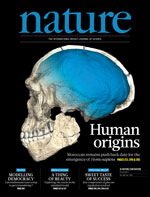Most countries in the Amazon have no clear policy frameworks to provide a legal path for sustainable wildlife management (SWM), including the commercial use of bushmeat. In Colombia, despite efforts to provide more local autonomy in the management of natural resources and the openness towards the sustainable use of wildlife since the 1970s, there are still a number of legal and technical impediments that need to be regulating the activity. Then, we explore the opportunities for legal commercial hunting by rural communities and highlight current bottlenecks. Finally, we report on lessons learnt from past initiatives of sustainable bushmeat use in the country. In our conclusion, we provide some legalize sustainable local bushmeat trade by rural communities.
Download:
DOI:
https://doi.org/10.1505/146554815817476521
Altmetric score:
Dimensions Citation Count:

Publication year
2016
Authors
Van Vliet, N.; Gomez, J.; Quiceno-Mesa, M.P.; Escobar, J.F.; Andrade, G.I.; Vanegas, L.; Nasi, R.
Language
English
Keywords
game meat, hunting, rural communities, sustainability, trade, wild animals, wildlife conservation, wildlife management
Geographic
Colombia
























